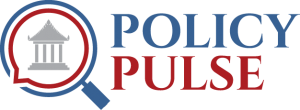The Knowledge Sector and Knowledge Producers in Cambodia: Situation, Challenges, and Programming Suggestions
In May 2019, The Asia Foundation and DFAT in Cambodia commissioned a team of three experts to conduct a series of diagnostic assessments to map out key barriers/constraints to a functioning knowledge sector and assess what needs to be done in the knowledge sector to improve functionality of the system. The study has three main aims:
- Review emerging national development issues and identify priority sectors that also align with gender equality and social inclusion (GESI) principles;
- Define the knowledge sector and take stock of the organisations that generate knowledge and evidence to directly or indirectly influence policy‐making processes;
- Review GESI within the broader national development agenda and in the knowledge sector.
The research methodology used the definition of a knowledge system developed by the Knowledge Sector Initiative in Indonesia (AusAID 2012) as: “the institutional landscape of government, private sector, and civil society organizations that provide research and analysis to support the development of public policy.” To map out and assess the knowledge sector, the team reviewed key policy documents on the economic strategy and direction of the knowledge sector in Cambodia; interviewed 23 key informants; and conducted a validation of findings with selected experts and stakeholders.
The main findings of the study are:
- Review of policy literature found that there is progress in terms of social economic development in Cambodia. To sustain this progress over the next ten years will depend on both domestic and external factors including regional economic integration, skills and jobs development, governance reforms, and the expansion of social protection systems;
- The Government’s Rectangular Strategy Phase 4 will be key to advancing the knowledge sector. This strategy sets out four goals for Cambodia by 2023: economic growth and stability; jobs and skills; poverty and vulnerability reduction; and better governance. To achieve these goals, the Government of Cambodia will invest in and focus on four strategic areas: human resource development; economic diversification; private sector development and employment; and sustainable development;
- There are several policy areas identified that offer opportunities to strengthen the knowledge production capabilities within Cambodia to inform policy decisions. These include: jobs; skills and migration; foreign policy including regional economic integration; social protection; social vulnerability in urban areas; public service delivery and innovation; and agriculture;
- An important component of the knowledge sector in Cambodia is characterized by young Cambodians who have studied overseas and now form a pool of professionals, practitioners, and entrepreneurs, including those associated with private universities, who are committed to knowledge production in the form of research and analysis and want that research and analysis to inform policy decisions;
- Few research institutes or think tanks have close links to policy-making circles;
- For GESI related topics, development partners have provided funding to ensure that research, analysis, and data to inform development policies adequately considers GESI issues such as: women’s economic empowerment; social protection; reducing violence against women. Some development partners, such as DFAT and UN agencies, are supporting research organisations working on GESI to build their capacity and networks with a longer-term view to increase availability and improve the quality of GESI research in the future;
- Most of the knowledge production by think tanks and research institutes involved standard research processes from inception to dissemination and publication. There seems to be scope for more innovation in terms of policy engagement amongst Cambodian think tanks with government institutes.
For summary report, please click here.
For full report, please click here.

